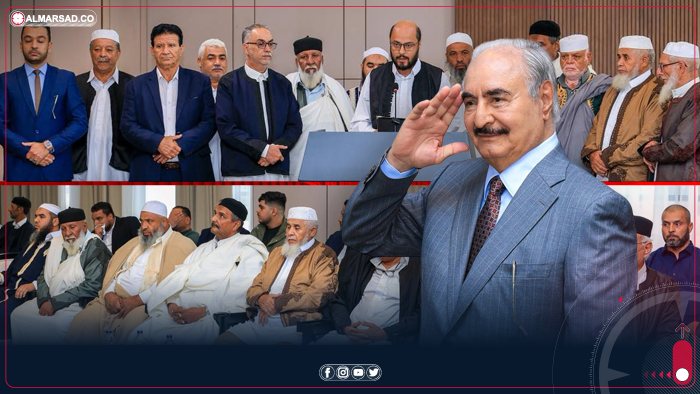Development’s Shield and Sword — Praise for an Emerging Era in the East and South, and a Warning on Extremist Rhetoric
Libya — Presidential contender Suleiman al-Bayoudi said on his “Facebook” page that a new era is being inaugurated in areas under the influence of the House of Representatives and the Libyan Government in the country’s south and east, where sustained efforts are under way to bolster security and stability through development, reconstruction, and building. He argued that “the results speak for themselves,” adding that this development has its shield and sword in the General Command, which made the new era possible.
An era of development in the east and south
Al-Bayoudi stated: “A new era is being inaugurated in regions under the influence of the House of Representatives and the Libyan Government in the south and east… All this proceeds without slogans or noise; the results speak for themselves and only the spiteful and biased would deny them. Most importantly, these achievements could not have seen the light had they not had a shield and a sword — the General Command that imposes security and stability and has made the new era possible.”
Critique of the west: slogans versus realities
He continued: “By contrast, despite glittering slogans, the west of the country is drowning in chaos and militias, and public services are collapsing by the day. Although the loudest slogans are about preserving the values and principles of February, in practice they collide with what is happening on the ground — repression and persecution of rivals and opponents, detentions, and intimidation. What remained of February has evaporated at the hands of its enemies since its outbreak as a revolutionary act, while oppression and plunder are now practiced in its name.”
A warning on takfiri rhetoric and social rupture
Al-Bayoudi cautioned against a “latent threat” many assumed had ended with the liberation of Libya from terrorism. He pointed to a circulating video of openly takfiri speech that “recalls ‘Statement 19,’ the first press-conference declaration to excommunicate the state — a precedent recorded in Libya.” He said the clip signals “time-bombs” living within society, potentially enjoying political and security cover, and emboldened to defy the state and the law. The message, he warned, suggests there is only one model to apply in the west of the country: dividing society into two camps — “the camp of heaven and the camp of hell” — echoing what he described as the first division of Libyan society in September 2011. Such a faction, he argued, would not have broken its silence and taqiyya were it not convinced of its safety — while its opponents, under tacit cover, are closer to prison and public humiliation — ready to be unleashed to abuse Libyans and return them to the square of chaos and death whenever the opportunity arises.
Whom does al-Bayoudi mean by “extremist rhetoric”?
According to this editorial follow-up, the warning relates to a video featuring Mohamed al-Jarrah, who turned a discussion about a Central Bank of Libya legal measure on safeguarding funds, combating money laundering, and the governance of donations into a religiously tinged, inflammatory speech. This framing incites against financial oversight and rationalizes defiance of the law, relying on takfiri classifications that split society and undermine the foundations of citizenship and the rule of law. Protecting donations and complying with financial oversight are both a legal and ethical duty; any exploitation of religion to obstruct the law should be addressed through investigation, justice, and institutional oversight — not through pulpits of incitement.


